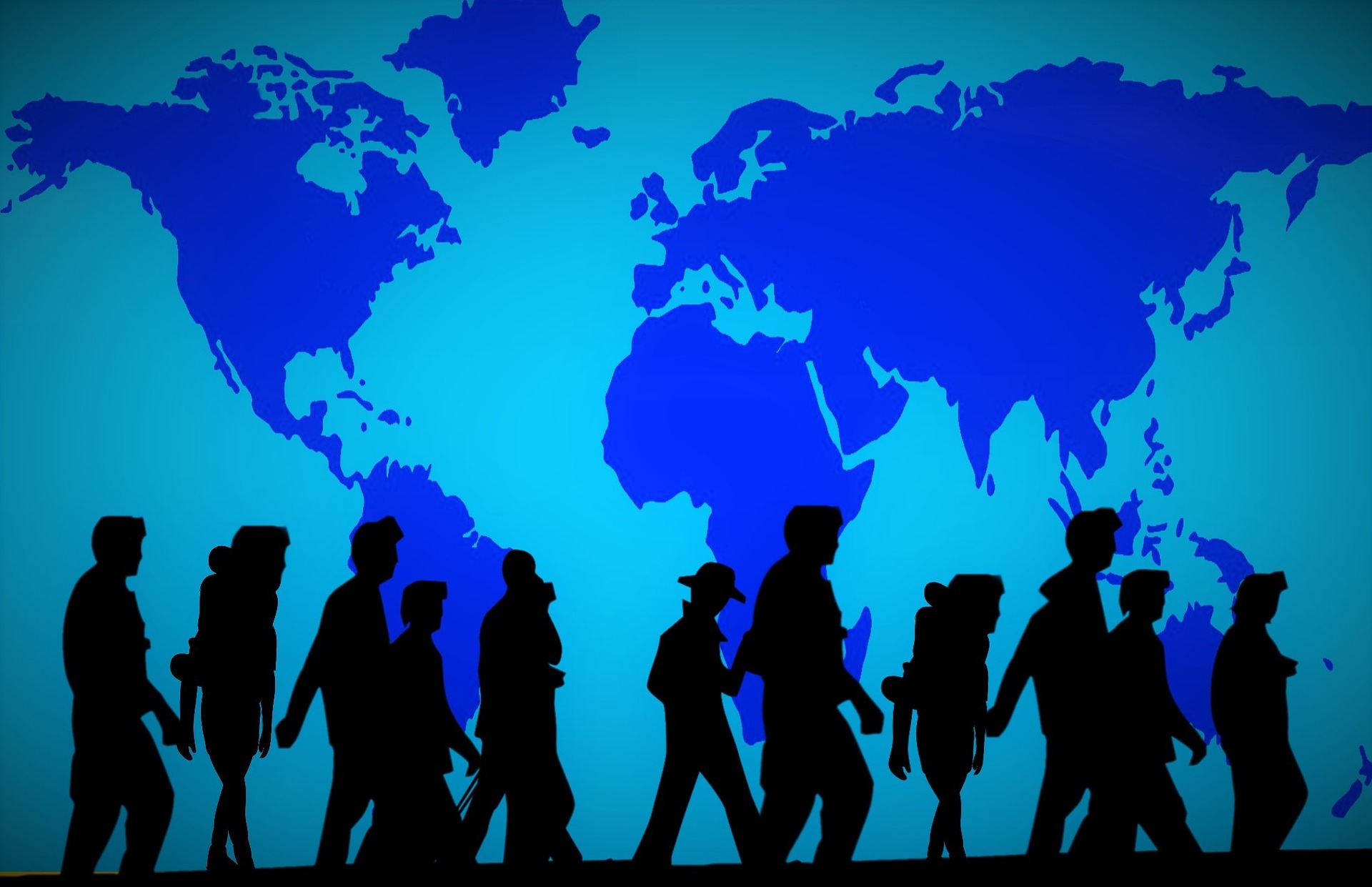(THIS ARTICLE IS MACHINE TRANSLATED by Google from Norwegian)
We live in a society where most people are mobile. "Tourists" are mobile of their own free will, always traveling to new meetings, new friends, new lovers and girlfriends, new experiences, concerts and sports competitions, and new destinations. We are not looking for lasting relationships, we do not have long-term life projects, much is intermediate, and attractive for a while, until we decide to move on. One I know wrote on FB that it was with great sadness that he had canceled 6 trips, in one day a typical network and academic tourist.
The "roaming hazards" are forced into mobility because their world is devastated by war, drought, food shortages, or flooding. Of course, it may also be that the prospects are so difficult that a dangerous journey, or escape, can seem like the only way out. The roaming hazards, or strayane, is not welcome any city. They meet closed borders, police and tear gas, and barbed wire fences. All countries are struggling to make themselves attractive to the tourists, but no one wants to accept the refugees, or the vagabonds, all those that are forced into mobility.
Villages shout a warning about tourists
The tourists are attractive to the recipient countries because they are individual consumers, and the only problem with the tourists is that they can become too many of them in one city, so that they go the way of remaining and trampling down and damaging both nature and the urban environment. That's why villages are calling Venezia, Barcelona, Dubrovnik and Bergen issued a warning that they cannot accept a large number of tourists, who even buy small items, because they carry everything on board the cruise ship.
The roaming hazards are in any case forced into immobility in temporary camps, where, of course, any viruses spread freely and where all intensive care is lacking.
Tourists i queue, is alien to the remaining, and experiences the other tourist as a fence for their own mobility, and an obstacle to their own peace. In this series, or the queue of tourists, there is no solidarity, and the tourist life contains a contradiction: Ideally, single tourists still want to be alone, but the others are important because it is the amount of tourists that makes it attractive and profitable to offer good restaurants , museum and cheap flights. So, other tourists are both a condition for myself to be a tourist, and a few creeps, which push themselves forward and breathe my neck.

Intensive care is lacking
Coronary measures are aimed at the mobility of tourists, for the roaming danger there are small changes, which are in any case forced to immobility in temporary camps, where of course any viruses spread freely and where all intensive care is lacking. In the past, roommates are used to not being able to travel regular tourist trips with fast planes and expensive luxury ships. Alternatives for the refugees are to cross the sea in inflatables, prepare to be interned in closed camps, and be met with fists and stiff looks rather by open hands and friendly looks.
It is primarily the role of "tourist" that we experience the strict control measures. We cannot fly around the world, most of the borders are closed, and we miss the opportunity to be a consumer, always traveling to find new products, exciting concerts and good food.
A serious crisis
There will be a serious crisis in the tourism, tourism industry, and airlines, restaurants, hotels and shopping centers are having difficult times. It is a little surprising that tourists accept this immobility, because the information about the corona virus says that this is a serious pandemic which leads to death for perhaps as many as 5% of us, but at the same time something that is morally awkward happens: Health communication has been ambiguous. It is said that the virus is very dangerous, but also another message is conveyed.
The virus is primarily harmful to the non-mobile, frail, sick, nursing and old. These young healthy and mobile have nothing to fear, and we come very close to claiming that these immobile that are interned in their own bodies have a different dignity than the healthy, young and mobile. Old frail will die soon anyway, and as long as the death toll is limited to those frail, sluggish and immobile, those who are mostly free, healthy and mobile have nothing to fear, other than the uncomfortable pain of missing a loved one person.
We are forced into a digital life.
One new day
But this one state of emergencyone, also fills us with a moral hope. After all, it is fantastic to witness the solidarity efforts, including our inner tourist, wish to renonsera on the desire for mobility to protect the immobile and most vulnerable of us. We are bound together, as vulnerable, frail and immobile. Everyone experiences the same threat. We take care of each other. We are the minds of others. And we must all create new routines, a new meaning, and a new security, when we can not participate in public institutions and be in physical proximity at public meeting places. We are forced into a digital life.
But there will be a new day, one can happen with more solidarity than before. And with greater rest and tranquility in life, and appreciation of a friend community. A crisis can also vitalize a renewed solidarity with mankind's dignity in the high seat, beyond the monetary value of mobile tourists and consumers.
Also read: When the virus goes viral, about infodemia and epidemic


